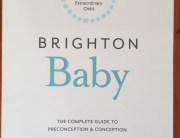 Most of my preconception and pregnant women really love their yoga and it was wonderful to come across this study that proves the benefits! The purpose of the study was to examine the effects of a yoga program on pregnant women’s comfort, labour pain and birth outcomes. First time mums were recruited and then half of them went into the active group. They received six 1 hour yoga sessions that involved postures, chanting, breathing, relaxation and meditation.The results showed that the active group experienced significantly higher maternal comfort than the control group both during labour and 2 hours post delivery. The active group also experienced a significantly shorter first stage of labour and less pain than the control group. The researchers concluded:“We suggest that 30 minutes of yoga practice at least 3 times per week for 10 weeks is an effective complementary means for facilitating maternal comfort, decreasing pain during labour and 2 hours post delivery and shortening the length of labour”Can I just add that those mums that combine yoga with HypnoBirthing have an even better result in my experience! SO, if you are considering a baby then get to your local yoga studio and begin your practice. For those of you that are pregnant, then join in my next HypnoBirthing course and do some yoga sessions and you will be greatly rewarded.Yoga during pregnancy: effects on maternal comfort, labour pain and birth outcomes.Chuntharapat S, Petpichetchian W, Hatthakit U.Department of Obstetric Gynecological Nursing and Midwifery, Faculty of Nursing, Prince of Songkla University, Hat Yai, Songkhla 90112, Thailand. songporn.c@psu.ac.thThis study examined the effects of a yoga program during pregnancy, on maternal comfort, labour pain, and birth outcomes. A randomized trial was conducted using 74-primigravid Thai women who were equally divided into two groups (experimental and control). The yoga program involved six, 1-h sessions at prescribed weeks of gestation. A variety of instruments were used to assess maternal comfort, labour pain and birth outcomes. The experimental group was found to have higher levels of maternal comfort during labour and 2h post-labour and experienced less subject evaluated labour pain than the control group. In each group, pain increased and maternal comfort decreased as labour progressed. No differences were found, between the groups, regarding pethidine usage, labour augmentation or newborn Apgar scores at 1 and 5 min. The experimental group was found to have a shorter duration of the first stage of labour, as well as the total time of labour.Complement Ther Clin Pract. 2008 May; 14(2):105-15.PMID: 18396254
Most of my preconception and pregnant women really love their yoga and it was wonderful to come across this study that proves the benefits! The purpose of the study was to examine the effects of a yoga program on pregnant women’s comfort, labour pain and birth outcomes. First time mums were recruited and then half of them went into the active group. They received six 1 hour yoga sessions that involved postures, chanting, breathing, relaxation and meditation.The results showed that the active group experienced significantly higher maternal comfort than the control group both during labour and 2 hours post delivery. The active group also experienced a significantly shorter first stage of labour and less pain than the control group. The researchers concluded:“We suggest that 30 minutes of yoga practice at least 3 times per week for 10 weeks is an effective complementary means for facilitating maternal comfort, decreasing pain during labour and 2 hours post delivery and shortening the length of labour”Can I just add that those mums that combine yoga with HypnoBirthing have an even better result in my experience! SO, if you are considering a baby then get to your local yoga studio and begin your practice. For those of you that are pregnant, then join in my next HypnoBirthing course and do some yoga sessions and you will be greatly rewarded.Yoga during pregnancy: effects on maternal comfort, labour pain and birth outcomes.Chuntharapat S, Petpichetchian W, Hatthakit U.Department of Obstetric Gynecological Nursing and Midwifery, Faculty of Nursing, Prince of Songkla University, Hat Yai, Songkhla 90112, Thailand. songporn.c@psu.ac.thThis study examined the effects of a yoga program during pregnancy, on maternal comfort, labour pain, and birth outcomes. A randomized trial was conducted using 74-primigravid Thai women who were equally divided into two groups (experimental and control). The yoga program involved six, 1-h sessions at prescribed weeks of gestation. A variety of instruments were used to assess maternal comfort, labour pain and birth outcomes. The experimental group was found to have higher levels of maternal comfort during labour and 2h post-labour and experienced less subject evaluated labour pain than the control group. In each group, pain increased and maternal comfort decreased as labour progressed. No differences were found, between the groups, regarding pethidine usage, labour augmentation or newborn Apgar scores at 1 and 5 min. The experimental group was found to have a shorter duration of the first stage of labour, as well as the total time of labour.Complement Ther Clin Pract. 2008 May; 14(2):105-15.PMID: 18396254
Yoga Is Proven To Facilitate Pregnancy&Birth!
Share This Story, Choose Your Platform!
Related Posts
PreviousNext







































































































































